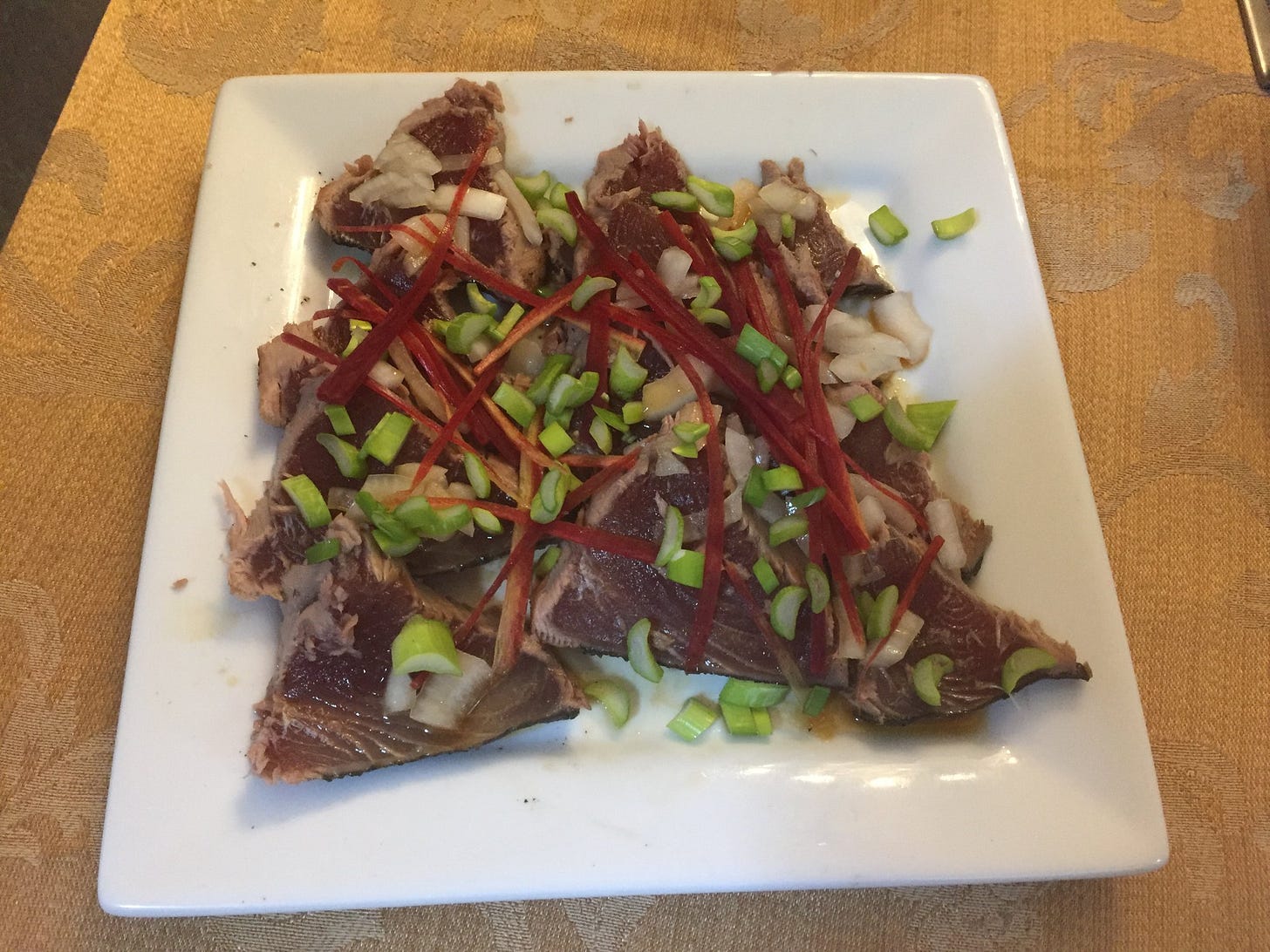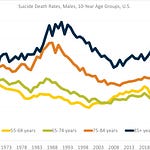After a recent overindulgence at Thanksgiving, I had some immediate retribution from my body. I’m fifty (and fat, female, fertile, and fair) — if you know, you know. I talk about dietary changes — made by my late husband Stuart throughout his life, and recent ones made by Taylor Lorenz (don’t know why she did hers) and me. I know why both Stu and I made changes, and explain.
Episode Links
Taylor Lorenz
Comments:
Real Food and Traditionally-Fermented Food
Real Food by Nina Planck - Amazon link, I get a commission
Yes, Virginia, you can butter your carrots. A farmer's daughter tells the truth about cream, eggs, fish, chicken, chocolate―even lard.
Everyone loves real food, but they're afraid butter and eggs will give them a heart attack―thus the culinary abomination known as the egg-white omelet. Tossing out the yolk, it turns out, isn't smart. Real Food reveals why traditional foods are actually healthy: not only egg yolks, but also cream, butter, grass-fed beef, wild salmon, roast chicken skin, and more.
Nina Planck grew up on a vegetable farm in Virginia and learned to eat right from her no-nonsense parents: lots of fresh fruits and vegetables, along with beef, bacon, fish, dairy, and eggs. Later, she wondered: was the farmhouse diet deadly, as the cardiologists say? Happily for people who love food, the answer is no.
In lively, personal chapters on produce, dairy, meat, fish, chocolate, and other real foods, Nina explains how ancient foods like beef and butter have been falsely accused, while industrial foods like corn syrup and soybean oil have created a triple epidemic of obesity, diabetes, and heart disease. Real Food upends the conventional wisdom on diet and health and explains our taste for good things.
Harnessing traditions from previous generations to preserve food is not only a passion for Shannon Stonger, but a way of life. Shannon walked away from a career in chemistry to raise her family. Shortly thereafter, she and her husband moved their family off the grid to discover a more simple, agrarian life. With only minimal solar-powered electricity, Shannon relies on practical food preservation techniques, such as fermentation, to provide nutritious food for her family while cutting food costs.
In Traditionally Fermented Foods, Shannon shows readers how to preserve food using traditional fermentation techniques, often without refrigeration. An alternative to canning and freezing, traditionally fermented foods do not require modern technology to preserve. You can learn Shannon’s authentic preservation technique, which she depends on daily to put food on the table, so you know they work. You can also learn how fermented foods work, how to make fermented foods and how to use fermented foods in recipes. This book contains over 80 recipes with corresponding photos.
Research Paper on Fried Foods
Association of fried food consumption with all cause, cardiovascular, and cancer mortality: prospective cohort study
BMJ 2019; 364 doi: https://doi.org/10.1136/bmj.k5420 (Published 23 January 2019)Cite this as: BMJ 2019;364:k5420
Abstract
Objective: To examine the prospective association of total and individual fried food consumption with all cause and cause specific mortality in women in the United States.
Design: Prospective cohort study.
Setting: Women's Health Initiative conducted in 40 clinical centers in the US.
Participants: 106 966 postmenopausal women aged 50-79 at study entry who were enrolled between September 1993 and 1998 in the Women's Health Initiative and followed until February 2017.
Main outcome measures: All cause mortality, cardiovascular mortality, and cancer mortality.
Results: 31 558 deaths occurred during 1 914 691 person years of follow-up. For total fried food consumption, when comparing at least one serving per day with no consumption, the multivariable adjusted hazard ratio was 1.08 (95% confidence interval 1.01 to 1.16) for all cause mortality and 1.08 (0.96 to 1.22) for cardiovascular mortality. When comparing at least one serving per week of fried chicken with no consumption, the hazard ratio was 1.13 (1.07 to 1.19) for all cause mortality and 1.12 (1.02 to 1.23) for cardiovascular mortality. For fried fish/shellfish, the corresponding hazard ratios were 1.07 (1.03 to 1.12) for all cause mortality and 1.13 (1.04 to 1.22) for cardiovascular mortality. Total or individual fried food consumption was not generally associated with cancer mortality.
Gayelord Hauser
I didn’t mention Gayelord Hauser in the episode, but I came across him years ago, and I believe he was an influence on Stuart’s own nutritional research. I don’t think Stu noticed the names of people… and Hauser was well before Stu’s time. It could be that Hauser influenced the people Stu was reading.
Here’s the Wiki article: Gayelord Hauser
Benjamin Gayelord Hauser (May 17, 1895 - December 26, 1984),[1] popularly known as Gayelord Hauser, was an American nutritionist and self-help writer, who promoted the 'natural way of eating' during the mid-20th century. He promoted foods rich in vitamin B and discouraged consumption of sugar and white flour. He rose to fame as a self-help author, popular on the lecture and social circuits, and was nutritional advisor to many celebrities.
Hauser was supported by many film stars but was often in conflict with the medical community.[2] He promised people they could add years to their life by eating five "wonder foods": blackstrap molasses, brewer's yeast, skimmed milk, wheat germ and yogurt.[3] He was criticized as a "food faddist" and his dieting ideas were described by medical doctors as pseudoscientific and quackery.[3][4][5][6]
Stu didn’t partake of skim milk, being a vegetarian, but definitely used brewer’s yeast as a source of B vitamins. It’s also known as nutritional yeast.
Livejournal links
3 Dec 2024: I have turned into Stu
(note: I have not turned into Stu. This is a story of a diet change to fix a health problem.)
18 Sept 2006: ....drooooooool.....[Real Food]
Okay, I've got to make a book plug: Real Food: What to Eat and Why by Nina Planck is a serious must-read for anybody having diet-related trouble. I picked it up a few weeks ago (I believe I mentioned it in a link to Instapundit on the matter) and Stu read it first, then I read it, and then we started implementing it. Here's a short run-down of my personal results, and perhaps Stu will post his own later.
Background: Stu has had all sorts of diet-related trouble in the past, which made him go vegetarian a long time ago. He first cut out meat, and when that didn't do the trick, he cut out dairy. This would have been in the late 80s. I, on the other hand, have survived a pretty crappy diet; it wasn't so bad when I was at home (though I did get plenty out of the Chef Boyardee food group), but at NCSSM I lived off of Cheerios and apple juice (and pizza, when I could scrounge it off of people who could afford to buy it), and at State I had a taste for all things noodley. I got some money later on, and ate out a lot, opting for burgers and steak. Since I moved to NYC, the diet has run the gamut from $1.50 slices with Coke to high-end sushi.
Stu’s comment on that post:
More from Stu, 11 Aug 2005: On diet and prostate cancer
Vegan diet, exercise shown to help slow prostate cancer
You don't know how many times I've been told that as a 'true or strict or complete' vegetarian I was risking numerous health problems and possibly an early death. Ha!
FWIW, I hate that the phrase 'vegan diet' is used to mean what vegetarian meant not too long ago.
Speaking of veganism, did you know that most plastics (which includes pleather) are most likely made using chemicals obtained from rendered animals? That's right, plastics found in every day items such as shirt buttons, computers, TVs and most definitely cars. I'm glad to see that the inedible bits of cow, which meep can't eat, don't go to waste.
Remember kids, if you can hunt and kill an animal with a sledge hammer, it's just begging to be eaten.
22 Mar 2001: stupid PETA tricks
i really hope the PETA people are getting adequate nutrition. When the Fishkill stink came out, Stu thought that perhaps the kiddies hadn't gotten enough B vitamins, because there seemed to be a lack of cognitive function. Of course, I would want a baseline comparison with =before= they became vegetarian, so we could get a good idea of whether there has been mental loss or perhaps (as i conjecture) a simple plateau.
22 July 2008: Everyone's a hero in his own way....
Reminds me of how Stu pointed out to an annoying vegan (keeping in mind that Stu was a vegetarian at this time) that there were bugs smeared all over his car. And then I had a very educational time at agriculture week at State one year, when I got to find out that yes, they use all of the cow except for the moo. Even if one carefully avoids eating any foods with animal-derived products inside, eschews wool and leather, buys cruelty-free makeup, yadda yadda, it's pretty damn impossible to buy any modern stuff that uses no animals parts at all. It's in paint, adhesives, paper manufacturing, you name it.
I think there's nothing wrong with attempting to avoid as much animal products as one can, but it helps to be realistic and to not be a pain in the ass about it. Of course, the vegans and vegetarians I have personally known have been fine in terms of not being annoying (the most annoying thing a vegetarian has done to me is become a meat-eater. Dangit, Stu). It's the crazy PETA people who never do their cause any good.
19 Oct 2006: Omega-3 deficiency can have some bad effects
Some dietary experiments occurring in British prisons
I have no doubt. Reminds me of previous experiments that showed that a strictly vegetarian diet had a bad effect on violent male prisoners.
I have been eating a teensy more fish, but I have determined I have an iron stomach. If the crap I ate as a kid didn't kill me, I doubt my lack of sardines will kill me now.
I have cut out corn, soy, and canola oil as much as I can, and did note that regular bacon had some bad effects; so I'm sticking to the raw milk cheese, grass-fed meats, and the like...early results: huge drop in blood pressure. My BP used to range from 120/60 - 130/70. Lately when I take it, it's been 100/60 or so. Haven't tested the cholesterol levels yet, but they were pretty damn low before I started this new diet (diet as in way of eating, not diet as in trying to lose weight).



















Share this post